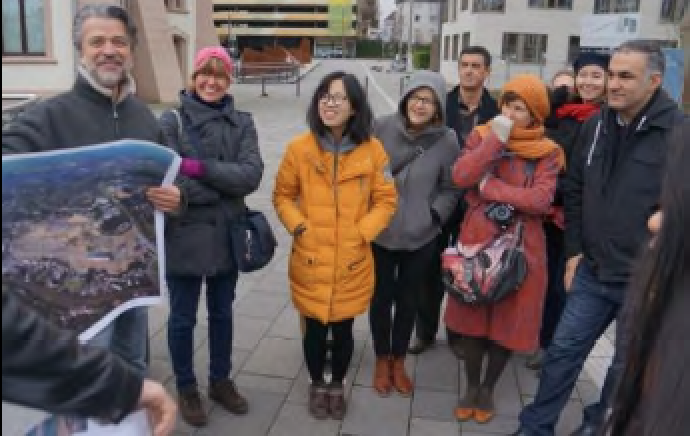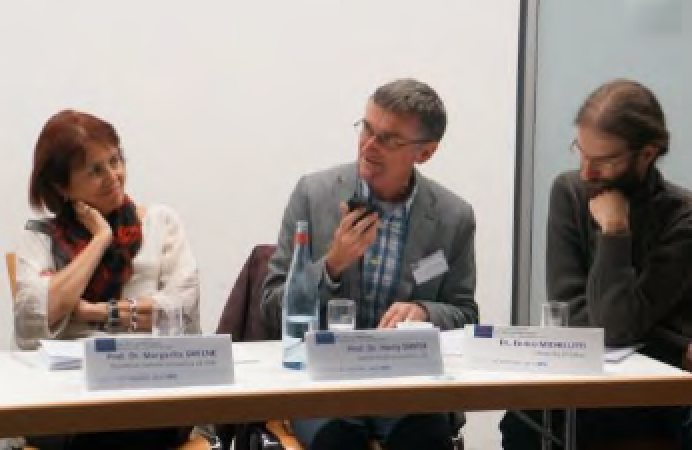dottorati climate change urban design events summer schools special news governance ecology spatial planning European policies inu housing social exclusion/integration premio tesi di laurea urbanization urban market social housing waterfronts & harbors social capital urban theory public art anthropology conferences call for papers transport & logistics
14 September 2017 – 16 September 2017
CfP 18th N-AERUS CONFERENCE
What urban in a hyper-connected Global South?
Milan, Italy
POLITECNICO DI MILANO - September 14-16, 2017
DEADLINE FOR ABSTRACT SUBMISSION (passed): June 5, 2017
DEADLINE FOR FULL PAPER SUBMISSION: September 4, 2017
• N-AERUS - Network-Association of European Researchers on Urbanisation in the South
• DAStU - Department of Architecture and Urban Studies
• Politecnico di Milano
• COOPERA(C)TION | Knowledge and Skills for Sustainable Cities in the Global South
The 18th N-AERUS Conference
WHAT URBAN IN A HYPER-CONNECTED GLOBAL SOUTH?

Photo: ConnectivityATLAS | Source: CityLab ©
Since its first appearance at the end of the ‘90s, the term ‘Global South’ has replaced the previous categories of ‘Third world’ and ‘developing countries’, becoming increasingly used in social sciences and humanities. Yet, its meaning is far from being univocal or clear. Global South is associated, on one hand, with some of the ills of globalization and, on the other hand, with an unspecified South of the world, largely equivalent, but not identical with the ‘Third World’ (Eriksen, 2015), corresponding to those parts of the world experiencing the most difficult challenges posed by globalization (Lopez, 2007). The Global South is opposed to an equally hard to distinguish ‘Global North’. Though, the world appears much more complex and mixed than what depicted by such a straight distinction. Many poorer countries have been witnessing development processes, while inequality is growing in richer countries, together with a crisis running over almost all spheres of urban life, regardless the geographic context. All this questions the divide between the urban in the Global South and the urban in the Global North, two notions implying a methodological nationalism that tends to overshadow the coexistence of a ‘North’ and a ‘South’ in many cities where formality and informality coexist, together with high levels of underemployment and unemployment, and precarious habitat conditions.
Still, although the South is everywhere, not all the ‘souths’ are the same. They consistently vary from one urban area to another, not always coherently with the national context they fall within, thus making the territory of the city and the metropolitan region the fundamental scale for analysis.
The 18th N-AERUS conference yearns to gather scholars, practitioners and experts of cities with the most variegated provenances, interested in ascertaining the endurance of the Global South notion in the contemporary world by sharing experiences of urban planning and development policies.
CONFERENCE SESSIONS
The conference intends to focus on the following matters, articulated in 3 sessions:
• Understanding the features of the North in the urban South, and of the South in the urban North
The session intends to capitalize on the knowledge of the urban South and of the urban North accumulated in the last decades beyond the buzzwords and the easy dichotomies (such as the very classical one between ‘formality/ informality’) in the attempt to identify the still uncovered issues, perspectives and methods to consider when we deal with global contemporary urbanism.
• Planning: for what and for whom
The session is aimed to discuss the plurality of problems, claims and needs urban planning has to tackle today, starting from the criticalities, but also the potentialities of the many different ‘souths’ and ‘norths’ in the contemporary city. In continuity with the previous panel, focussed on the epistemological approaches to pursue in order to expand our comprehension of urbanity today, this panel tries to make a step further to collect experiences able to highlight the actual issues and subjects that planning must address today.
• Planning: how? Policies, projects, community based interventions
The session purposes to share approaches, methods and practices – be they good, bad or just practices – for connecting resources, coordinating efforts and, thus, creating progressive capacities to overcome the problems of present cities and to project them in the future.

Source: Report of the XVI N-AERUS Conference ©
SCIENTIFIC COMMITTEE
N-AERUS scientific committee:
• Cecilia Cabrera | UBA, Buenos Aires, Argentina
• Alexandra Linden | GIZ GmbH, Support to the Decentralisation Reform, Ukraine
• Enrico Michelutti | ULB, Brussels, Belgium
Italian scientific committee:
• Gabriele Pasqui | DAStU, Politecnico di Milano, Milan
• Marcello Balbo | DPPAC, IUAV, Venice
• Camillo Magni | DAStU, Politecnico di Milano, Milan
• Paola Piscitelli | DPPAC, IUAV, Venice - DAStU, Politecnico di Milano, Milan
Source: Report of the XVI N-AERUS Conference ©
ABSTRACT SUBMISSION
Abstracts and papers can be written in English, French or Spanish. A maximum 250 words abstract should be submitted in .pdf or .doc by 5th June 2017, to the conference e-mail address naerus2017@gmail.com.
Abstracts should include:
• A title
• Authors affiliation
• The purpose of the paper and/or objectives, methods of data collection and analysis (in empirical papers), theoretical background (depending on the orientation of the paper), main findings and contributions.
• The indication of which of the three conference themes the paper links to.
IMPORTANT DATES
• Abstract submission (250 words): 5 June 2017
• Abstract review and selection of full papers by 30 June 2017
• Registration: 30 June – 14 August 2017
• Full Paper submission: 4 September 2017
• Conference: 14 – 16 September 2017
INFO & CONTACTS
e-mail: naerus2017@gmail.com
website: n-aerus.net
Event schedule:
- Start: 09-14-2017
- End: 09-16-2017.




Planum
The Journal of Urbanism
ISSN 1723-0993
owned by
Istituto Nazionale di Urbanistica
published by
Planum Association
ISSN 1723-0993 | Registered at Court of Rome 4/12/2001, num. 514/2001
Web site realized by ChannelWeb & Planum Association | Powered by BEdita 3

